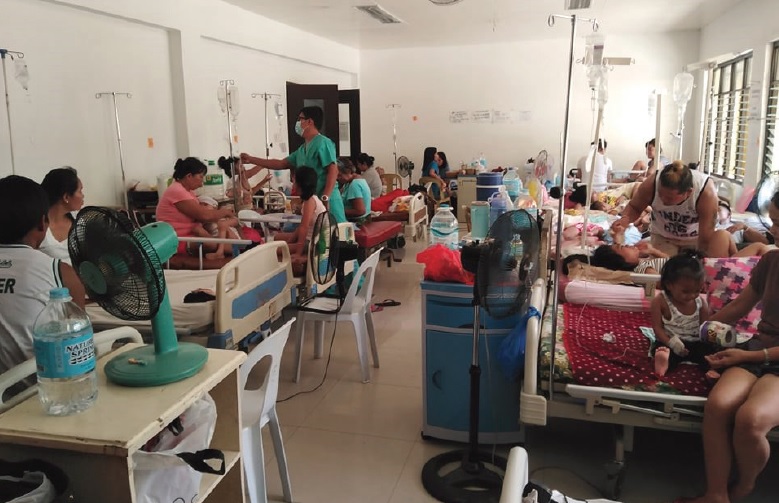
(SDC/PIA8-Eastern Samar)
BORONGAN CITY-The Eastern Samar Provincial Health Office (ESPHO) reported that the dengue fever suspected cases in Eastern Samar is both in the alert and epidemic status.
According to Provincial Health Office (PHO) Chief, technical section, Dr. Rodel Delgado, the province fell below the alert threshold for dengue for 13 weeks, but this week, the province breached both the alert and epidemic threshold for dengue.
Delgado said that the municipalities of Balangkayan, Lawaan, Maydolong, San-Julian, Sulat and Taft as well as the city of Borongan, have also breached the epidemic threshold while the municipalities of Balangiga, Giporlos, Llorente and San Policarpo have reached the alert threshold.
In a press conference on July 22, Delgado reported that Eastern Samar has 130 new cases of suspected dengue fever over the past three weeks.
The areas reporting the most cases of suspected dengue these past three weeks are Borongan City with 59 cases, Maydolong-13 cases, Taft-12 cases, Sulat-11 cases, and San-Julian with nine cases.
He said that from January 1 to July 19, 2019, the province has a total of 803 suspected dengue fever cases in 22 out of 23 municipalities and one city, and 276 barangays affected.
“This represents an 86 percent increase of dengue cases in the province compared with a similar period last year. This increase of dengue cases for the year was mainly due to the high number of cases seen during the first 12 weeks of the year and the increase of cases in the past three weeks,” Delgado said.
Most affected are Borongan City with 147 cases, Guiuan-107, Taft-58, Quinapondan-54, Gen. Mac-Arthur-51, and Maydolong-51.
Some nine deaths of suspected dengue cases were also reported since the start of 2019.
The most recent death was recorded in Taft – one on June 29.
Four deaths were recorded in Guiuan, one in Gen. Mac-Arthur, one in Hernani, one in Borongan City, and one in Maydolong.
Delgado further said, “Among the 803 cases reported, 144 had consultation at the Out Patient Department (OPD), while 659 cases were admitted in the government and private hospitals.”
Most of the recorded cases were children aged 11 to 20 years old with 339 cases; followed by aged one to 10 years old with 313 cases; 21-30 years old with 73; 31-40 years old with 33 cases; less than one year old with 22 cases; 41-50 years old with 15 cases; and over 50 years old with eight cases.
The ESPHO calls the public to be aware or rather seek early consultation if suffering from fever.
Dengue is an acute infectious disease manifested initially with fever.
The fever which may last from two to seven days with the following signs and symptoms: joint and muscle pain, severe headache and pain behind the eyes, weakness, and no appetite.
Some symptoms like vomiting, internal bleeding, skin rashes and abdominal pains are danger signs.
During the press conference, Provincial Administrator Nelson Cortez said that the province has already purchased dengue rapid tests.
He added that the hospital will soon open additional wards in the ESPHO exclusive for pediatric and adult dengue patients.
The Sangguniang Panlalawigan also approved last Friday, July 19 the authority of the governor to enter a memorandum of agreement to private clinics with lab services such as computerized tomography( CT)Scan.
Then there is the agreement with private pharmacies, if in case there is no medicine in the government hospitals.
The patients can get the medicines in the private pharmacy with assistance from the Malasakit Center (MC) which has an initial fund of P5 million.
The MC will be the one to pay for all the medicines and laboratory tests of patients in the private clinics.
Cortez said that Governor Ben Evardone allocated a big amount to buy medicines in the government hospitals.
Presently, the province activated the Dengue Task Force in all affected municipalities/city based on their dengue status alert level.
The Provincial Health Office personnel will also conduct larval survey, search and destroy, misting and fogging.
Cortez advised the local government units to work in constant coordination with the district hospitals, and ESPHO. (NBQ/SDC/PIA-Eastern Samar)



